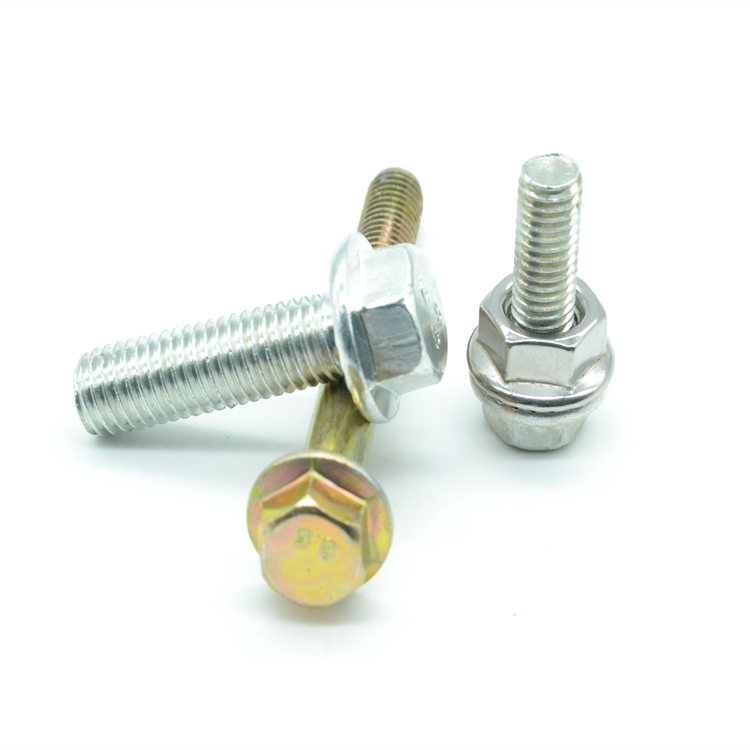precision washers factories
Dec . 11, 2024 12:23 Back to list
precision washers factories
Precision Washers Factories An Overview of an Essential Component in Manufacturing
In the realm of manufacturing, precision washers play a crucial role, serving as essential components that ensure the longevity and functionality of various mechanical assemblies. These small yet significant items are produced in precision washers factories that specialize in creating washers that meet stringent industry standards. This article explores the importance of precision washers, the manufacturing processes involved, and the benefits of choosing dedicated factories for their production.
The Importance of Precision Washers
Precision washers are thin, flat discs with a hole in the center, designed to distribute the load of a screw or nut evenly. They prevent damage to surfaces, reduce friction, and can also serve as spacers or shims. In sectors such as automotive, aerospace, electronics, and construction, precision washers contribute to the stability and reliability of assemblies.
In automotive applications, for instance, washers are critical to securing components in place, thus ensuring safety and performance. In electronics, they can prevent static buildup, enhancing the lifespan of sensitive components. The use of precision washers has become increasingly important as machines and devices require tighter tolerances and enhanced performance characteristics.
Manufacturing Processes in Precision Washer Factories
The process of manufacturing precision washers involves several key steps, from material selection to finishing techniques. The high-quality factories producing these washers often adhere to ISO certifications to meet global standards.
1. Material Selection Precision washers can be made from various materials, including stainless steel, aluminum, plastic, and brass. The choice of material depends on the intended application, required strength, and environmental considerations. Stainless steel, for instance, is often chosen for its corrosion resistance, while nylon washers may be selected for electrical insulation properties.
2. Stamping and Cutting Once materials are selected, the manufacturing process typically begins with stamping or cutting. Automated presses are used to create the washer shape from sheets of material. This step is critical, as the precision of the cutting affects the overall performance and functionality of the washer.
3. Finishing Processes After the basic shape is created, washers undergo various finishing processes, such as deburring, polishing, and coating. These processes not only enhance the aesthetic appeal of the washers but also improve their performance characteristics. For instance, a coating can enhance corrosion resistance or reduce friction.
precision washers factories

4. Quality Control A hallmark of reputable precision washers factories is their commitment to quality control. The finished washers are subjected to rigorous testing processes, including dimensional checks and stress tests. These procedures ensure that the washers meet the specified tolerances and can withstand the intended loads.
Benefits of Choosing Dedicated Precision Washers Factories
When sourcing precision washers for manufacturing needs, opting for specialized factories offers several advantages
1. Expertise and Experience Dedicated factories typically possess deep industry knowledge and experience. Their specialized focus allows them to understand the specific requirements of various sectors and deliver products that meet or exceed expectations.
2. Custom Solutions Many precision washers factories offer customization options, allowing manufacturers to order washers in specific sizes, materials, and finishes. This flexibility is essential for unique applications that standard products may not meet.
3. Reliability Engaging with a specialized factory can lead to greater reliability. Established manufacturers often have robust supply chains and quality assurance processes that help ensure timely delivery and consistent quality.
4. Innovation Facilities dedicated to precision washer manufacturing are often at the forefront of technological advancements. They invest in state-of-the-art machinery and techniques, which can lead to improved efficiencies and the development of innovative washer designs.
Conclusion
Precision washers may seem like small components in the vast landscape of manufacturing, but their significance cannot be overstated. They play a vital role across various industries, contributing to the reliability and safety of countless products. By choosing specialized precision washers factories, manufacturers can ensure they receive high-quality, tailored products that meet their specific needs, fostering innovation and efficiency in their own operations. As industries continue to evolve and demand higher performance, the role of precision washers will undoubtedly remain critical.
Latest news
-
Premium Phosphated Drywall Screws Supplier | Durable, Rust-Resistant
NewsAug.27,2025
-
Reliable Wire Bolts Suppliers | Quality Zinc Plated Fasteners
NewsAug.26,2025
-
Wire Bolts Suppliers: Durable & Reliable Fasteners for Every Project
NewsAug.25,2025
-
Premium Cabinet Bolts Supplier | Wholesale & Custom Solutions
NewsAug.24,2025
-
Reliable Axle Nuts Supplier | Quality & Precision Fasteners
NewsAug.23,2025
-
Durable Bolts for Lawn Mower Handle - Top Supplier & Manufacturer
NewsAug.22,2025
